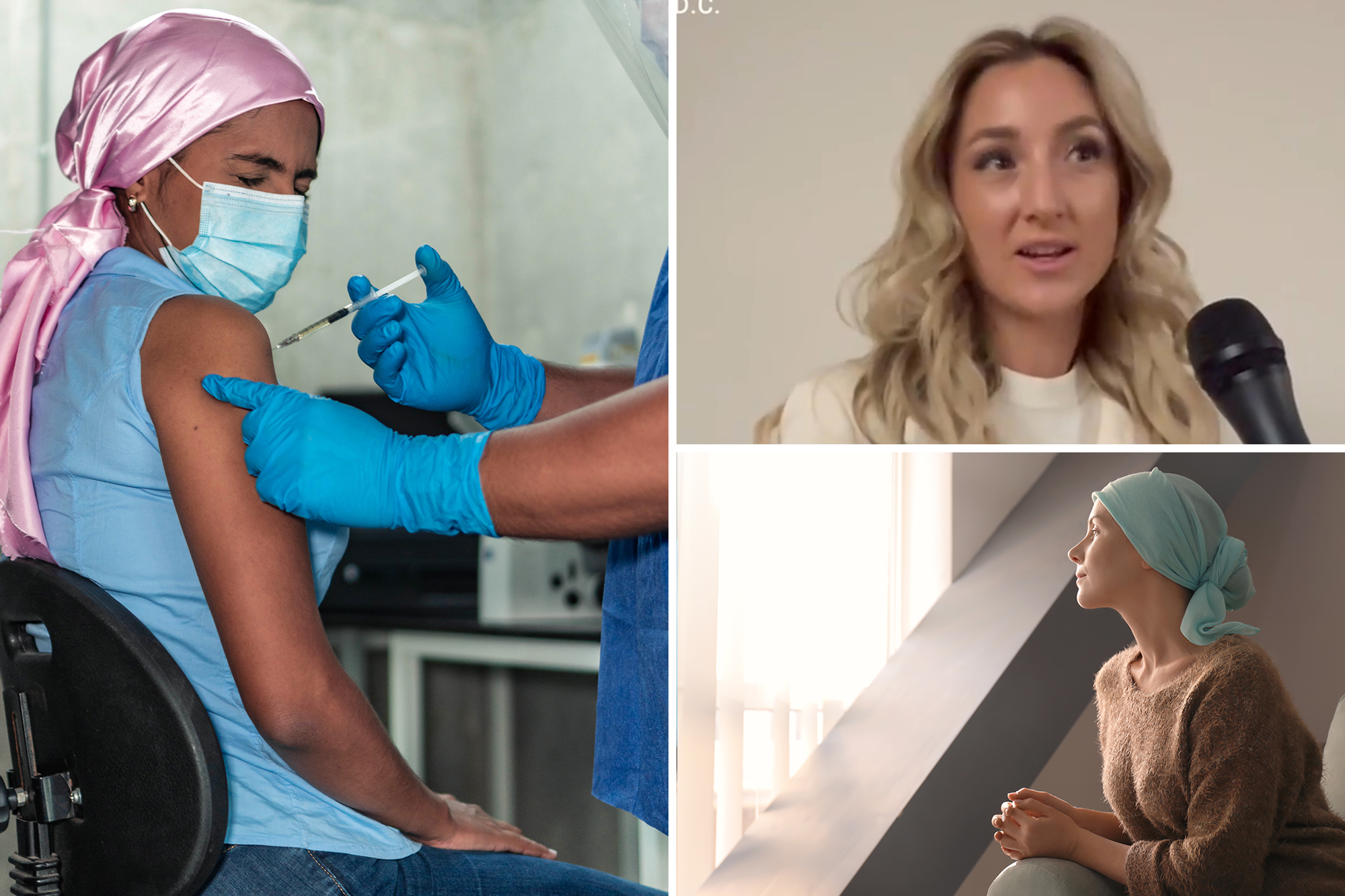
There may be new hope on the horizon for patients with kidney cancer in the form of an experimental vaccine.
Researchers at the Dana-Farber Cancer Institute, Harvard Medical School, Yale Cancer Center and other universities have announced early findings from a study of an anti-tumor vaccine for patients with advanced kidney cancer.
“Patients with kidney cancer in phase 3 or 4 are at high risk of repetition,” said the author of good co-perpetrator and co-chair investigator Toni Choueiri, MD, director of the LANK Center for Genius Cancer in Dana-Farber, in a press release.
“The tools that we have to reduce that danger is not perfect, and we are seeking more ruthlessly for more.”
After undergoing surgery to remove a malignant tumor, the nine study participants received a cancer vaccine aimed at “training” their immune systems to identify and attack any prolonged cancer cells, according to the press release.
Eachdo vaccine was personalized to match the type of individual patient’s tumor based on cancer cells that were removed during surgery. These cells contain “neoantigens”, which are “small fragments of mutant protein,” the release said. Researchers used “predictive algorithms” to determine which neoantigens should be included in the vaccine to ensure the highest level of immunity.
Five of the patients also received ipilimumab, a type of immunotherapy drug.
The nine patients showed a “successful immune response against cancer” after receiving the vaccine. After an average of 34.7 months, everyone was left without cancer.
Within three weeks of receiving the vaccine, patients showed an “immune response”, with T cell points more than 166 times, the release said. (T cells, also known as T lymphocytes, are immune cells that help fight cancer and prevent infection.)
“The tools that we have to reduce that danger is not perfect and we are seeking mercilessly.”
In the study, T cells were found to remain in the patient’s body for up to three years and attacked existing tumor cells.
“We have noticed a rapid, significant and sustainable expansion of new T cell clones about the vaccine,” said Patrick OTT, MD, PhD, director of the Dana-Farber Cancer Center.
“These results support the feasibility of creating a personalized very immunogenic personalized neoantigen vaccine in a lower mutation burden tumor and are encouraging, although higher degrees will be required to fully understand the clinical efficiency of this access. ”
The results of the clinical test were reported in the Nature magazine on February 5th.
“We are very excited about these results, which show such a positive response in all nine patients with kidney cancer,” Choueiri noted.
For most patients with stage 3 or 4 cancer in the kidneys, standard treatment is surgical removal of the tumor, which is often followed by an immunotherapy drug called Pembolizumab (Keytruda).
“Pembolizumab causes an immune response that reduces the risk of cancer to return,” according to Dana-Farber. “However, about two -thirds of patients can still repeat and have limited treatment options.”
First author David A. Braun, MD, PhD, a medical and medical oncologist at the Yale Cancer Center and Yale Medical School noted that the approach used in this study was “really distinct from effort vaccines in kidney cancer. “
“We choose objectives that are unique to cancer and different from any normal part of the body, so the immune system can” run “effectively to cancer in a very specific way,” Brown said.
“We learned which specific objectives in cancer are more susceptible to immune attack and demonstrated that this approach can generate prolonged immune responses, directing the immune system to recognize cancer. We believe this work can form a foundation for the development of development Neoantigen vaccines in kidney cancer. “
‘Exciting and promising’
Charles Nguyen, MD, a medical oncologist who specializes in kidney cancer at City of Hope in Orange County, California, noted that kidney cancer is among the most common cancers in men and women in the US
“Patients with early (localized) kidney cancer are often treated first with surgery to remove the tumor – however, many patients have a risk of cancer that returns years after surgery, and has a great interest in finding ways To reduce the risk of repeating cancer, “Nuyen, who was not involved in the study, told Nuyen, told the Fox News Digital.
“This exciting clinical test evaluated a personalized cancer vaccine that uses genetic information from each patient’s cancer to train and improve the patient’s immune system to recognize cancer and prevent it from repeating.”
While Nguyen admitted that this was a small study, the nine patients receiving the vaccine were without cancer three years later.
“This is a very exciting and promising tool for many of our patients with kidney cancer, where we can one day make a possible cure for everyone.”
Side effects and restrictions
Some patients have experienced side effects from the vaccine, including local reactions at the vaccine injection site and flu -like symptoms, although “no higher -scale side effects were reported.”
Researchers also admitted that there were some research -related restrictions.
“There were restrictions on the antigen forecasting tools available at the time and the ability to target only a single antigen,” they writes.
“Moreover, it was carried out in placing active metastatic disease in a number of study participants.”
Future research with greater clinical evidence is planned to confirm the effectiveness of the vaccine and full potential, the release said.
Funding for this study was provided by Gateway for Research Cancer, US Department of Defense, Yale Cancer Center, Dana-Farber/Harvard Cancer Center, Harvard Medical School, Trust Family Foundation, Michael Brigram, Pan-Mass Challenge, Hinda L. And Arthur Marcus Foundation, Locker Pinard for Kidney Cancer Research at the Dana-Farber Cancer Institute, National Health Institutes, Conquer Cancer Foundation/Sontag Foundation, the release said.
#Experimental #cancer #vaccine #shows #promising #results #patients
Image Source : nypost.com